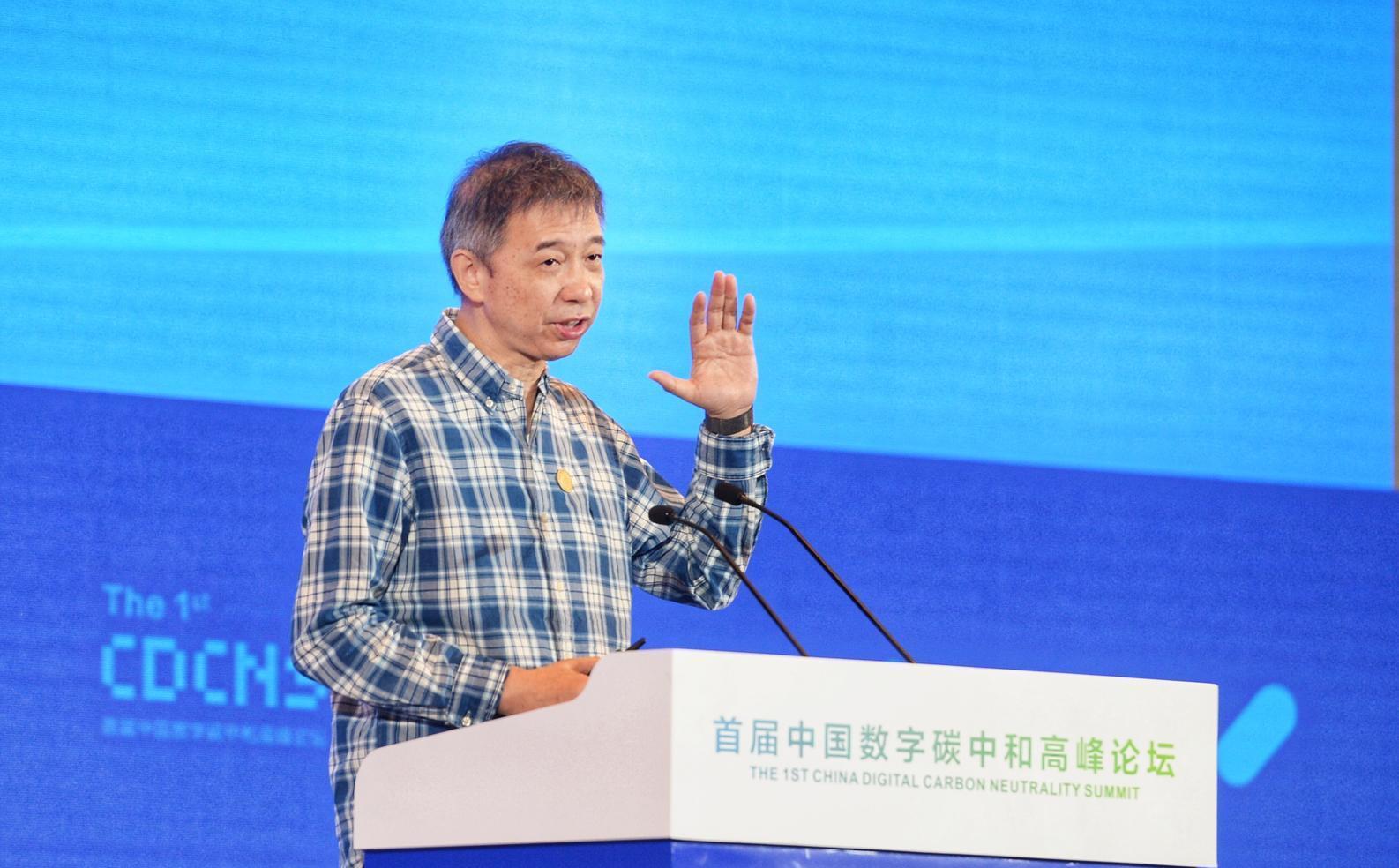"Cities house 50 to 60 percent of the world's population, but consume about 70 percent of their energy." Today (September 7), at the first China Digital Carbon Neutrality Summit Forum held in Chengdu, Wang Jian, academician of the Chinese Academy of Engineering and expert in cloud computing technology, gave such a set of data in his speech.
Citing this data, Wang Jian said that in the process of achieving the double carbon target, the target cannot be simply dismantled into specific industries or sectors, "The city is related to production and life, and should be regarded as a very important subject." "Currently, the carbon emissions of the top 100 cities account for about 20% of global carbon emissions.

Wang Jian
To this end, Wang Jian put forward the concept of "urban digitalization" - the digitization of cities, the key is to greatly improve the efficiency of urban resource use, so that when the per capita resource consumption of cities is much lower than that of developed countries, and when it reaches carbon neutrality, it can still greatly improve people's living standards.
For example, at the end of the 19th century, marked by Edison's first grid in New York, there was a huge increase in the city's carbon emissions, which was the era when electrification began. As electrification becomes more thorough, carbon emissions increase dramatically, and most of the energy will be made available to people in the form of electricity.
"Today's digitalization is electrification a hundred years ago." In Wang Jian's view, digitalization should be placed in the same important position as electrification. It is understood that in the list of 100 engineering achievements of the 20th century released by the American Academy of Engineering in 2003, electrification ranked first, followed by airplanes, automobiles, the Internet, and computers. Wang Jian believes that electrification is not a specific industry, just like digitalization, the possibilities brought to our production and life in the future are immeasurable.
Wang Jian once raised such a problem: in a city with 3 million motor vehicles, there are 200,000 cars on the road when there is no traffic jam, and when the peak is blocked, there are 300,000 cars on the road, and only 100,000 more. "Just 100,000 more cars, it shouldn't paralyze urban traffic." In his view, the core is not to make good use of data. For example, hotels can also waste a lot of energy because of improper configuration, which also needs to be digitized.
Wang Jian pointed out that from 2010 to 2018, the global calculation volume increased by more than 500%, while the energy requirement increased by only 6%. From a technical point of view, he said, we have the opportunity to exchange calculations for the reduction of our energy. In Wang Jian's view, in future calculations, every additional kilowatt-hour of electricity should reduce the consumption of about 10 degrees of electricity for the world. "Cloud computing, like electricity in the age of electrification, has a very big impact on society."
Red Star News reporter Zou Yue photojournalist Wang Xiao
Edited by Guan Li
(Download Red Star News, there are prizes for the newspaper!) )